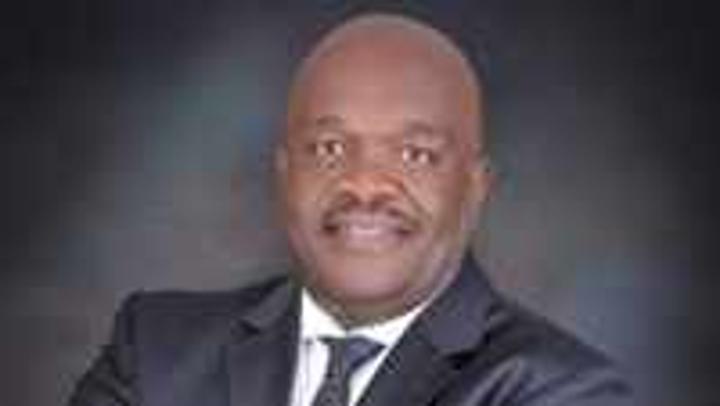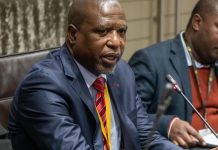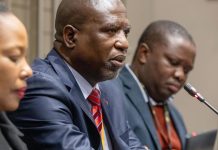Africa-Press – South-Africa. By Willie Thabe
Trust is the bedrock of South Africa’s fledgling democracy and economic system.
In an era plagued by financial collapse, unguided populism, racism, Covid-19, and a difficult transition where trust has to be built properly, the task seems insurmountable.
In many ways what has transpired in politics and economics has practically vanquished and abused the necessary trust for a workable social contract.
These perilous patterns of distrust and the entrenched inequality have jettisoned any sense of shared reality. The nation has lost confidence in institutions, experts, and scientists, but has to deal with challenges like Covid-19.
As the accelerants of a doom and gloom gain traction in the nation’s psyche, one wonders if there is any room left for repairing the networks of trust that could enhance social cohesion.
The lethality of distrust paralyses the nation from dealing with economic justice, polarisation, pandemic resilience, gender-based violence and other global challenges.
The question is whether we can somehow develop and deepen repair trust that has been so fundamentally dented – in many communities it never existed in the first place.
There is a need to find a way of deriving a values-based response that emanates from South Africans of goodwill that militates against the prevailing polarisation.
Values-based choices we make will define us as a nation for years to come.
Covid-19 continues to spread, and what is not growing is trust in our institutions to control and provide facts surrounding it.
When civil society rose to discourage the R70 billion IMF soft loan on the basis that the money would be diverted to corrupt officials, it was the greatest signal that trust had almost been irreparably broken.
The government’s ambitious project of vaccinating 67 percent of the population will not materialise given that 48 percent is not prepared to be vaccinated.
Among other things that set New Zealand apart in dealing with this pandemic is the transparency and clarity of their messaging.
How can we confront the problem of our reality when we are not agreed on what that reality is?
Covid-19 is not hitting all communities equally – this places the onus of behaviour on individuals without a consideration of the socio-economic conditions faced by the vulnerable.
In a country of extreme inequalities, the response on structure and policies should be value driven.
It is the government that should set the tone and derive workable strategies.
In effect, the further relaxation of the restrictions should have contained a clear plan of redressing the unequal harm experienced by the economically disadvantaged community with assurances as to how the broader community will be protected from the harmful effects of this pandemic.
Perhaps this challenge calls for an ubuntu-based response premised on our moral virtues. Ubuntu is a virtue reflecting applied morals. Actions that promote individual and collective well-being.
While these virtues are universally held across many cultures, they are the bedrock of what constitutes ubuntu: generosity, compassion, honesty, solidarity, fortitude, justice and patience. But without trust how do we even begin?
As one renowned American author put it: “Trust by its very nature is also an act of vulnerability.”
All sectors of society must trust each other to develop social cohesion, and this seems a bridge too far in the prevailing climate.
However, it has been established that the countries that have managed the coronavirus more effectively have higher levels of trust among members and institutions of that particular society.
The ability to solve problems that require co-operation is contingent on having high levels of trust. As a black South African I was always aware of how easy people from privileged communities lacked perspective, the new South Africa has spawned a new class of people who lack perspective.
Many black people who are in the middle class lack the lived experience of those who live on the peripheries of society or have conveniently forgotten the experience of those who are treated worse by virtue of being part of the “underclass”.
We need to be conscious of the fact that trust has not been placed equally in South Africans by institutions, because it is not how we trust institutions; it is how institutions trust us.
Trust has been eroded in many private sector companies such as Steinhoff, EOH, Tongaat Hullett and a host of others. Most of the large state-owned entities have a litany of questionable practices and transactions.
Chapter 9 institutions, particularly the Office of the Public Protector, have been brought into total disrepute.
While evidence that seems to provide a prima facie basis to prosecute individuals is vented at the Zondo Commission of Inquiry, what seems to be the next logical step is postponed indefinitely. This does not augur well for our institutions bearing the trust of civil society.
The quest for a more inclusive system of governance in South Africa and globally seems elusive and unattainable. Since, “we are all in this together”, we therefore need to recalibrate, and rebuild trust in all our institutions and our personal interactions.
The American scholar Mencken brings the point even closer home when he says: “It is mutual trust, even more than mutual interest, that holds human association together.”
Willie Thabe is the managing executive of Angavu Ethical Solutions.
BUSINESS REPORT






